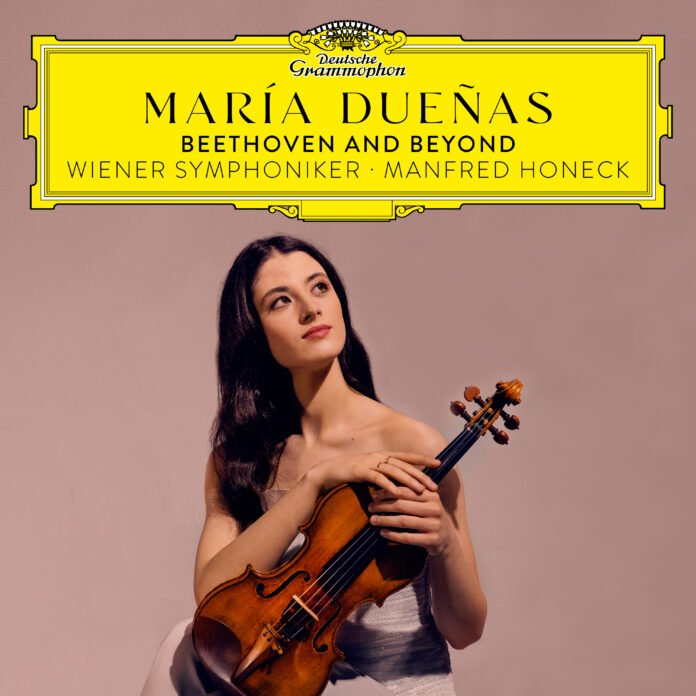Music Review Beethoven and Beyond, Maria Duenas (violin), Manfred Honeck / Wiener Symphoniker / Deutsche Grammophon
Every time a new version of a popular classic is released, the quintessential question is: What novel interpretation can it possibly offer? More often than not, new versions are based on historical performances, with a fast pace and minimal rubato. However, familiar with Honeck’s full-bodied soundscapes from previous releases, I suspected that I was in for something different. The only wildcard was Duenas, a violinist I had never heard of.
Much to my delight, this rendition of Beethoven’s Violin Concerto surprised me. It provides a refreshing perspective, not through the lens of the historically informed performance (HIP) approach, but quite the contrary. This is Beethoven in all his grand, expansive expressivity, embracing lyricism and emotion. A word of caution: If a modern HIP interpretation is what you seek, you might be disappointed (for such a recording, I highly recommend Tetzlaff/Zinman, a personal favourite). Yet, for those who appreciate music imbued with heart, soul, and introspection in modern sound – well, this is the album you want to get!
The first movement, at a stretch of 27:55, is an almost idyllic pastoral portrayal, more akin to the Romantic than Classical tradition. The instant the violin enters, one is immediately struck by Duenas’ sweet and distinctive tone. Unlike many contemporary recordings where the violinists seem indistinguishable, Duenas stands out as new, innovative, and brave. Why brave? Her bravery lies in her willingness to present the concerto in her unique style, replete with emotional engagement yet devoid of any tasteless sentimentality. It’s as if Duenas is narrating a story with each note; this was the impression I received every time I listened to this new release. But can a performance really be innovative, not by offering something novel or HIP but by being expressive and romantic with just enough personal gusto? The answer here is a resounding yes!
And it is the same heartfelt lyricism that characterises the first movement that also carries over to Larghetto, which is marked by moments of raw emotion. As for the finale, well, it had me raising an eyebrow with its almost 12-minute run. This was longer than even Kavakos’ recording, known for its unhurried tempo. And indeed, right after the cadenza, I thought the tempo started to slacken slightly – and that usually at this moment, soloists usually start to propel the music before it reaches its majestic close. But right at that time, Duenas’s violin swooped in with some soul-stirring notes that made me forget all about tempi.
Needless to say, Duenas introduces her own cadenzas across all three movements, all of which harmoniously complement the concerto’s overarching lyrical disposition. The Vienna Symphony Orchestra, under Honeck’s able leadership, produces a grand, romantic sound that veers away from the customary vibratoless practice of contemporary performances.
The latter part of the album enriches the collection with cadenzas for the concerto, crafted by a diverse array of composers. Duanes renders the additional pieces by other composers with remarkable skill and heartfelt emotion. Still, I don’t see myself listening to these pieces often, charming as they are.
There is one minor criticism: the sound recording. The violin, at times, feels too amplified, too close. A bit more aural space would have been advantageous. But overall, this album, overflowing with emotionally charged and daring ambition, stands as a testament to music’s ability to resonate and revitalise. And it is my belief that performances that unabashedly display their hearts on their sleeves should indeed be lauded and encouraged. Recommended.






